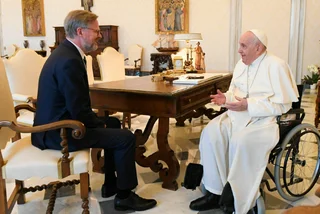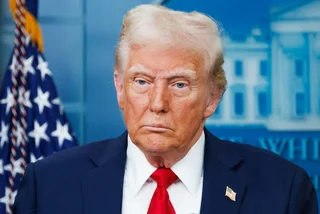Prague, Sept 13 (CTK) – The state attorney halted the prosecution of Czech Prime Minister Andrej Babiš (ANO) and other persons in the Čapí hnízdo case of a suspected EU subsidy fraud today, Prague Municipal State Attorney’s Office (MSZ) has announced on its website.
MSZ chief attorney Martin Erazim said the Čapí hnizdo case meant a complex legal question of the way to interpret the term “small and medium-sized company”, which is a category of firms that were eligible for the 50-million-crown EU subsidy that Farma Capi hnizdo obtained in mid-2008.
“The accused persons, who applied for the subsidy at the time, presented Farma Čapí hnizdo as a small or a medium-sized firm in their affidavit. The law enforcement bodies considered this assertion untrue and therefore criminal prosecution was launched,” Erazim said.
The evidence procedure, however, led to the conclusion that Farma Čapí hnizdo did meet the relevant criteria, Erazim said, adding that this is why he shared and approved the legal opinion of Jaroslav Saroch, the subordinate attorney in charge of the Čapí hnizdo case investigation who proposed to halt the prosecution several days ago.
The Farma Čapí hnizdo company, at that time under the name ZZN Agro Pelhrimov, was originally a part of Agrofert. In December 2007, Čapí hnizdo became a joint stock company with bearer shares. In the summer of 2008, it received a 50-million-crown subsidy within a programme for small and medium-sized businesses it would have never reached as part of Agrofert. After a couple of years of observing the subsidy conditions, Capi hnizdo returned to Agrofert.
The police launched prosecution against Babiš and other suspects over Čapí hnizdo in late 2017. This April, they proposed that the state attorney file criminal charges.
Erazim said the link between Farma Čapí hnizdo and Agrofert, Babiš’s giant chemical, agricultural and food holding, played no role as the two companies neither competed with each other nor did they unify their activities in a joint market. That is why the [Čapí hnizdo] firm was correctly assessed as an independent enterprise, even though there were links between these two entities, mainly through the [Babiš] family members, he said.
“After acquainting myself with this assessment [by Saroch], I was forced to use my powers of the chief state attorney and ask myself whether, given the legal state of things, I would file criminal charges against anyone in this case, no matter if he were the prime minister or anybody else. I had to honestly answer that I would not,” Erazim said.
The case, which in the beginning looked like a simple fraud aimed to attain an EU subsidy, has gradually developed into a complex legal question of how to interpret certain parts of EU directives. A solution to this question may be up to the European Court of Justice, Erazim said.
“Even if it turned out, based on the European Court’s subsequent ruling…that Farma Čapí hnizdo did not meet the definition of the small and medium-sized company when the application for subsidy was submitted in 2008, I consider it impossible to blame anyone for the possible wrong assessment of this legal question at the time, 11 years ago,” Erazim said.
He said in his draft decision, Saroch also coped with the conclusions made by the European anti-fraud office (OLAF) without challenging them or reaching an opposite conclusion.
“In this respect, he [Saroch] mentioned the possibility of a broader assessment for the purposes that are different from the purposes of the assessment of the suspects’ criminal accountability within the criminal proceedings,” Erazim said.
As soon as the decision on the halt of prosecution comes into effect, the MSZ will send it to Supreme State Attorney Pavel Zeman, who can cancel it as unlawful. He will have three months to decide.
The Supreme State Attorney’s Office (NSZ) can ask the MSZ to submit the files and other documents and also make a check.
If Zeman cancelled the halt, the prosecution would continue under the supervision of Saroch, who, in his decision-making, would be bound by the legal opinion as voiced by the top attorney and would have to take all steps and procedures ordered by the latter.
Zeman would not comment on the case for now since he has received neither the Prague State Attorney’s Office decision nor the criminal file as yet, his spokesman Petr Maly said today.
Babiš has for a long time dismissed any wrongdoing connected with Čapí hnizdo, a conference and recreation centre south of Prague.
Apart from him, the prosecuted suspects were his wife Monika, his adult daughter from the first marriage, Adriana Bobekova, brother-in-law Martin Herodes and two former members of Farma Čapí hnizdo, Jana Mayerova and Josef Nenadal.
The halt of the prosecution does not apply to the last suspect, Babiš’s son from the first marriage, Andrej Babiš Jr, since his case has been handled in separate proceedings and they continue for the time was being, the state attorneys have told CTK.
($1=23.565 crowns)
rtj/dr/hol












 Reading time: 4 minutes
Reading time: 4 minutes 




























